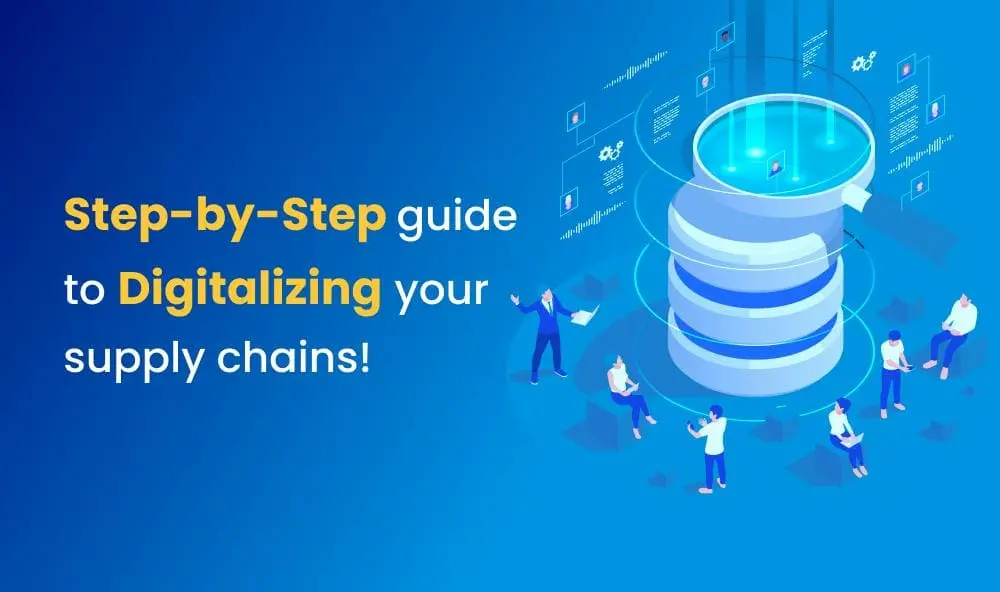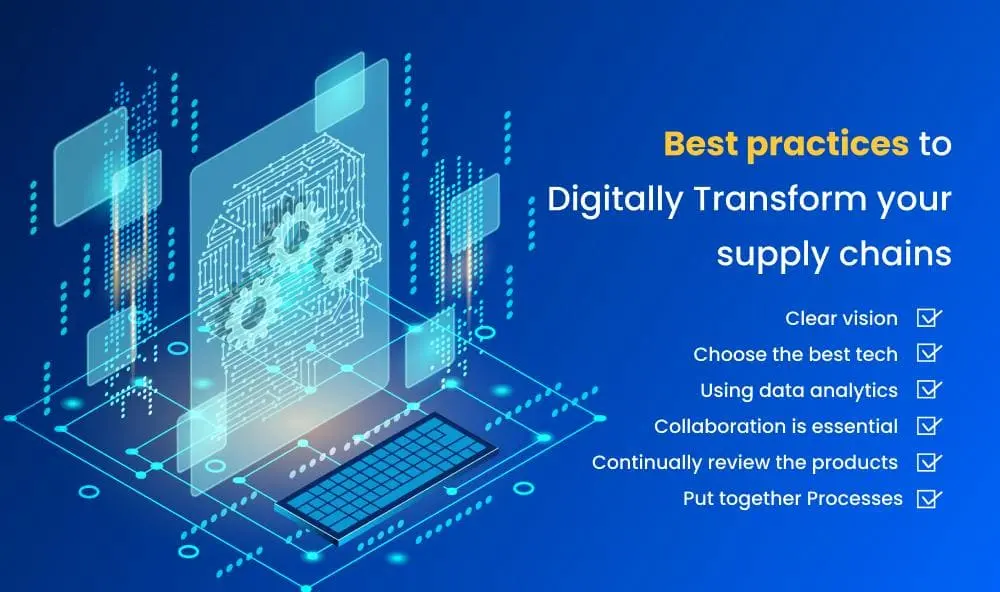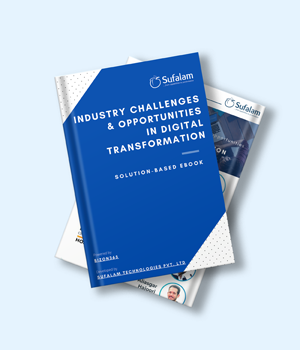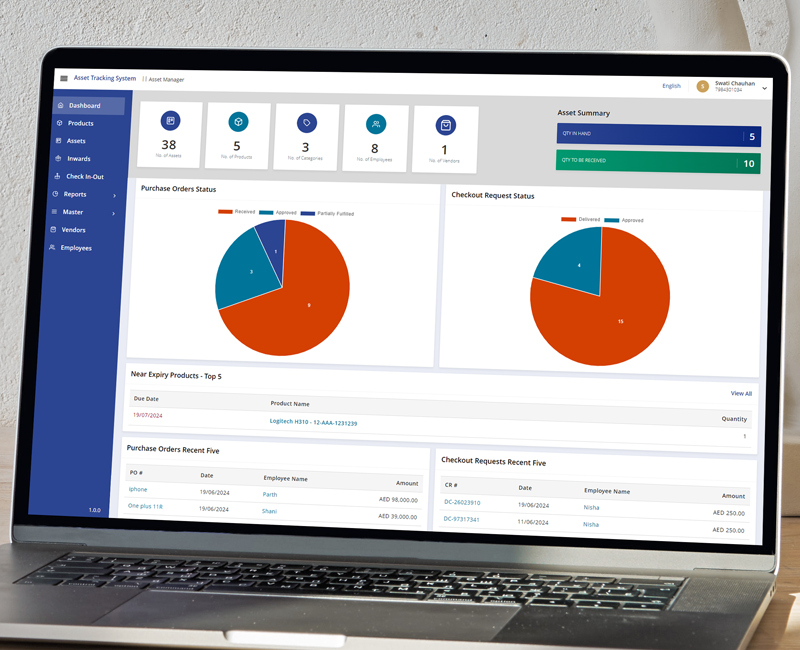
Every industry nowadays is going through much-needed digital transportation to get the best out of growing trends and offer much-needed customer satisfaction.
According to a Gartner report, "91% of companies are involved in some kind of digital activity."
Consequently, organizations are undergoing a digital transition that is at an all-time high. This is due to the fact that all markets and industries are recognizing the potential of digitalization.
The majority, if not all, industries have been severely impacted by the Covid epidemic. The supply chain industry was one such sector that suffered significantly. However, it is quickly bouncing back and redefining itself through a crucial digital transition.
The global digital supply chain market is estimated to be worth $8.5 billion by 2022, with a compound annual growth rate (CAGR) of 14.5%.
Worldwide, the supply chain industry is adopting a new mindset and moving away from conventional supply chains.

Source: Research and Markets
To know more about how digital transformations can streamline supply chains and their benefits, keep reading!
What is Digitalization in Supply Chains?
A digital transformation in the supply chain involves the use of modern technologies and current applications to increase the company's agility, capability, effectiveness, efficacy, and ROI.
It enables businesses to provide clients with greater value at a lower cost. In supply chain management, digital transformation refers to a change in business practices as well as the adoption of new technologies.
Supply chain digitization is the advancement of conventional supply chains via the use of digital transformation services and products. Digital technology in supply chains has helped numerous businesses to increase connectivity, efficiency, experience, and general acceptance of new processes.
By integrating technologies or platforms like data analytics, IIoT (Industrial Internet of Things), logistics systems, Digital Integration Platforms, etc., you can digitize your supply chain.
Here’s a step-by-step guide to digitalizing your supply chains!

- Assess current supply chain processes & the goals: Evaluate the existing supply chain processes to identify pain points, inefficiencies, and areas that can benefit from digitalization. Also, define the goals and objectives of this transformation to get the best out of it. This assessment will provide a baseline for improvement and help prioritize digitalization efforts.
- Determine suitable technologies: Research and identify technologies that align with the goals and objectives defined in the previous step. It includes technologies such as blockchain, the Internet of Things (IoT), AI development, cloud computing, big data analytics, and supply chain management software.
- Establish data integration: Data integration is crucial for digitalizing the supply chain. Integrate data from various sources, such as suppliers, manufacturers, logistics providers, and customers, into a central system or platform. This will enable real-time visibility and data-driven decision-making across the supply chain.
- Implement supply chain management software: Deploy a robust supply chain management software solution that can handle end-to-end processes, from procurement and production to inventory management and distribution. The software should provide features such as demand forecasting, inventory optimization, order tracking, and performance analytics.
- Enable real-time visibility & automation: Leverage technologies like IoT app development sensors, RFID tags, and GPS tracking to capture real-time data. Also, Embrace automating manual and repetitive tasks within the supply chain to improve efficiency and accuracy.
- Monitor and continuously improve: Regularly monitor the performance of the digitalized supply chain and measure it against the defined goals and objectives. Identify areas for improvement, gather feedback from stakeholders, and make necessary adjustments to optimize the digitalized supply chain further.
Some popular digital transformation solution trends for supply chains you should know about!

Cloud-based digital transformation solutions
The introduction of cloud computing solutions has changed how businesses run, and the supply chain is no exception. In comparison to conventional on-premise systems, cloud-based digital transformation solutions have more flexibility, scalability, and affordability.
- The enhanced flexibility of cloud-based systems is one of its most important benefits.
- Scalability is another benefit of cloud-based solutions. Cloud-based solutions are simple to scale up or down to accommodate changing business needs.
- Finally, compared to on-premise systems, cloud-based solutions are often more affordable.
Cloud-based solutions are a desirable alternative for companies of all sizes due to their advantages.
Internet of Things (IoT)
IoT is one technology that has drawn investors from all over the world as firms continue to spend on rethinking supply chain tactics. IoT has demonstrated benefits for businesses.
This is because IoT devices can track the location, temperature, and even condition of commodities in transit when they are integrated with supply chains. This technology can deliver real-time data and continuously improve supply chain operations.
Smart Control Towers
In order to serve consumer expectations by supplying at the proper location and time, businesses need improved visibility to forecast demand and manage their inventory.
According to McKinsey, 39% of industry leaders are implementing the nerve center method, also known as the control-tower approach, and leveraging Industry 4.0.
As it gives them a comprehension of their present inventory, resources, and status, it aids them in monitoring and adjusting the entire supply chain.
Modern control towers are equipped with AI and ML to foresee possible issues and give you pertinent, immediately implementable answers. This is often referred to as the ability to "anticipate, sense, and respond," and it makes any company's supply chain responsive and adaptable.
Best practices to digitally transform your supply chains?

- Have a clear vision: Evaluate current supply chain barriers and have a clear strategy in place.
- Choose the best tech: Select the technology that is ideal for your company.
- Using data analytics, create smart chains: Make sensible judgments regarding supply chain operations using data analytics.
- Collaboration is essential - It is quite crucial for the success of digital supply chain management transformation. Partnerships with customers, suppliers, and technology companies can greatly improve the supply chain's efficiency. Also, don’t forget to hire dedicated developers who understand your requirements and offer best solutions accordingly.
- Continually review the products: Make the process iterative by continually assessing and using technology in accordance with the needs. It's critical to change along with the market needs and customer preferences.
- Put together Processes: Businesses that guarantee complete supply chain visibility have a history of success.
Conclusion
The current situation demands digital transformation. Businesses should realize this as soon as possible. As supply changes are one of the most significant aspects of running a business, transformation is critical. The multitude of benefits that digital transformation brings to the table ensures the company's success.
There is no doubt that many sectors are moving in the right direction, and with the right tools, technologies, and apps at their disposal, they can enhance their supply processes, simplify their supply-chain operations, and achieve maximum efficiency throughout, while exceeding customer expectations.
Along with the right platforms and technology, you also need the right implementation partner to streamline your supply chain operations.
One such leading digital transformation company is Sufalam Technologies, which will help you tackle the challenges of the supply chain in your business and satisfy your customers.
Frequently Asked Questions
How can the best digital transformation services help me?
The best digital transformation services can help your business by providing expertise, guidance, and support throughout your digital transformation journey. They can help you assess your current state, identify digital opportunities, develop a tailored digital strategy, implement technology solutions, and manage the supply chain operations.
Can I hire dedicated developers for my supply-chain digital transformation services?
Yes, you can easily hire dedicated developers to manage your supply chain’s digital transformation. If you want, our digital transformation company – Sufalam Technologies, can easily help you out.













